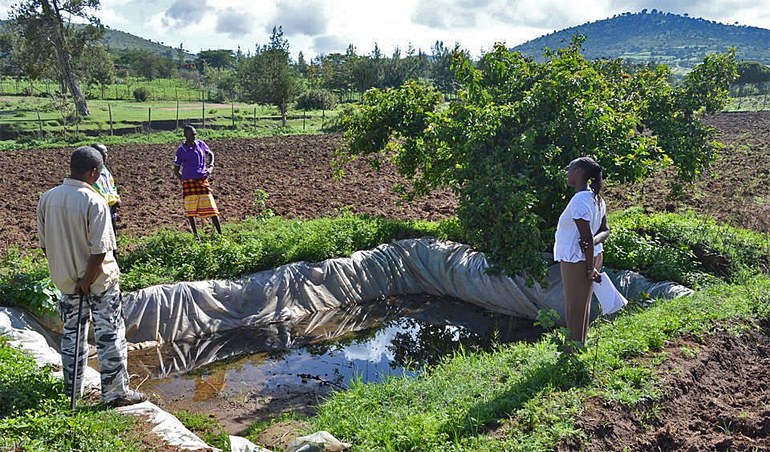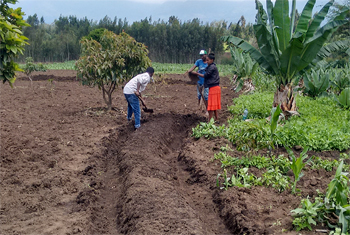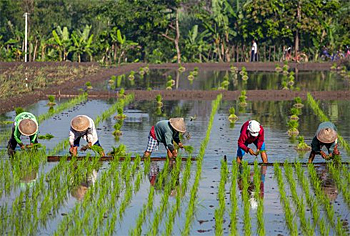Better farm water management can help to achieve UN Sustainable Development Goals
 About 40 percent of the water used for irrigation are unsustainable withdrawals and re-allocation of these volumes to the environment would drop crop yields by at least 10 percent on half of all irrigated land, especially in Central and South Asia. However, by improving the efficiency of the irrigation systems, for instance by using more rainwater, the loss can be compensated and even turned into a 10 percent gain of production.
About 40 percent of the water used for irrigation are unsustainable withdrawals and re-allocation of these volumes to the environment would drop crop yields by at least 10 percent on half of all irrigated land, especially in Central and South Asia. However, by improving the efficiency of the irrigation systems, for instance by using more rainwater, the loss can be compensated and even turned into a 10 percent gain of production.
This study finding by researchers of the Potsdam Institute for Climate Impact Research, International Institute for Advanced Systems Analysis and Wageningen University, shows that it is possible to pursue both UN Sustainable Development Goal #2 on food, as well as goal #6 on water.
 New quantitative evidence
New quantitative evidence
The study was recently published in Nature Communications and provides new quantitative evidence that negative environmental effects can be avoided while maintaining food production at global level.
Much of this potential can be realized through traditional and affordable farmers’ practices accessible for smallholders.
‘Seemingly conflicting elements of the Sustainable Development Goals (SDGs) can be reconciled if addressed properly’, says Jonas Jägermeyr from the Potsdam Institute for Climate Impact Research, lead-author of a team of scientists.
 Water-saving measures
Water-saving measures
This study details how such visions could start to fall into place without relying on future technology fixes. ‘This requires an improvement of irrigation systems, together with better management of rainwater’, says Hester Biemans of Wageningen Environmental Research (Alterra).
‘Water-saving measures are crucial for achieving the objectives. By implementing well-known and affordable farming techniques that are already available to small farmers, agricultural production can be increased by more than 20 percent in many regions.’
Read the full article Reconciling irrigated food production with environmental flows for Sustainable Development Goals implementation on the website of Nature Communications Weblink (open access).
This news item was originally published on the website of Wageningen University.
Read also on this website
● COP22: African agriculture gains momentum to produce more food with less water, 16 November 2016
● Stockholm Water Week 2014: Rainwater management crucial for eradication global poverty, 4 September 2014
● Projects: Sustainable irrigation for 6000 rice farmers in Mozambique
● Expertise: Water and agrifood
More information
Wageningen Environmental Research (Alterra)
Wageningen, the Netherlands
+31 317 480 700
www.wur.nl/en



